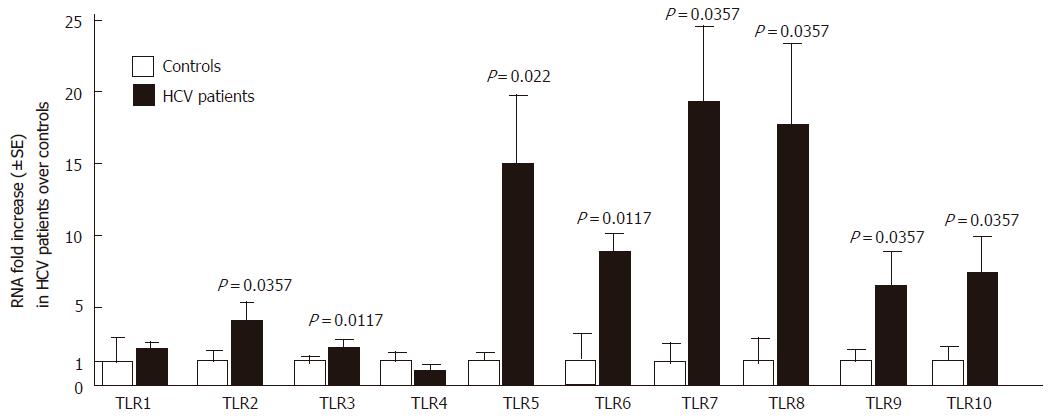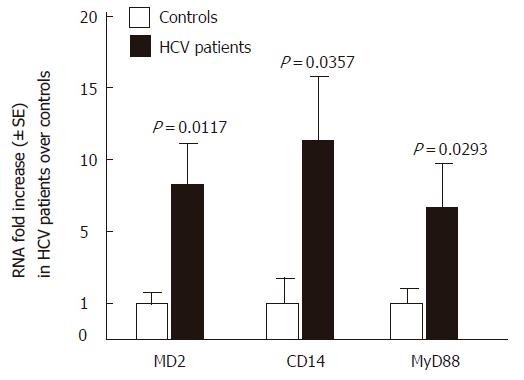Copyright
©2006 Baishideng Publishing Group Co.
World J Gastroenterol. Feb 28, 2006; 12(8): 1198-1204
Published online Feb 28, 2006. doi: 10.3748/wjg.v12.i8.1198
Published online Feb 28, 2006. doi: 10.3748/wjg.v12.i8.1198
Figure 1 Higher TLRs 2, 5, 6, 7, 8, 9 and 10 RNA expression by monocytes of HCV-infected patients compared to controls.
RNA was purified from adherence-isolated monocytes and real-time PCR for TLRs 1-10 and 18 S RNA (as endogenous control) was performed as described in Materials and Methods. For each individual, TLR-coding RNA expression was normalized to corresponding 18 S RNA. Results are expressed as fold increase of each TLR in HCV-infected patients compared to controls. Results are from 14 HCV-infected patients and 14 controls.
Figure 2 Monocytes of HCV-infected patients express higher levels of TLR co-receptors MD2 and CD14, and TLR adaptor MyD88 compared to controls.
RNA was purified from adherence-isolated monocytes and real-time PCR for MD2, CD14, MyD88 and 18 S RNA (as endogenous control) was performed as described in Materials and Methods. For each individual protein of interest-coding RNA expression was normalized to corresponding 18 S RNA. Results are expressed as fold increase of each protein of interest in HCV-infected patients compared to controls. Results are from 14 HCV-infected patients and 14 controls.
Figure 3 Higher TLRs 1, 2, 4, 6, 7, 8, 9 and 10 and MD2 RNA expression by lymphocytes of HCV-infected patients compared to controls.
RNA was isolated from lymphocytes and real-time PCR for TLRs 1-10, MD2 and 18S RNA (as endogenous control) was performed as described in Materials and Methods. For each individual, TLR- or MD2-coding RNA expression was normalized to corresponding 18S RNA. Results are expressed as fold increase of each TLR or MD2 in HCV-infected patients compared to controls. Results are from 14 HCV-infected patients and 14 controls.
- Citation: Dolganiuc A, Garcia C, Kodys K, Szabo G. Distinct toll-like receptor expression in monocytes and T cells in chronic HCV infection. World J Gastroenterol 2006; 12(8): 1198-1204
- URL: https://www.wjgnet.com/1007-9327/full/v12/i8/1198.htm
- DOI: https://dx.doi.org/10.3748/wjg.v12.i8.1198











